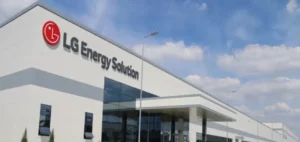The development of energy storage infrastructure in California takes a new step with a 400 MWh contract signed between Eos Energy Enterprises and International Electric Power (IEP). This project will be implemented at Camp Pendleton, a strategic Marine Corps base located in San Diego County. This site will benefit from a long-duration storage solution partially funded by the California Energy Commission (CEC).
A strategic project for energy resilience
This contract, structured with an initial down payment, demonstrates California authorities’ commitment to bolstering energy resilience in a region vulnerable to supply fluctuations. The installations planned for 2025 mark the second collaboration between Eos and IEP, following a similar project deployed in Texas.
The CEC’s long-duration energy storage program aims to support projects capable of maintaining grid stability despite the intermittency of renewable energy sources. By securing this order, Eos Energy addresses the growing demand for technological solutions tailored to critical infrastructure needs.
Innovative technological solutions
The project will utilize long-duration batteries designed in the United States, suitable for use without active cooling systems. This feature reduces operational costs and environmental impact while ensuring maximum safety. The technologies deployed in this project are tailored to meet specific energy security requirements for military bases.
Impact for public and private sectors
This partnership reflects a growing dynamic between public and private stakeholders to support the energy transition. The collaboration between IEP, the CEC, and local suppliers aims to develop competitive and reliable storage infrastructures.
The involvement of Camp Pendleton in this project also highlights the strategic role of military installations in adopting innovative energy technologies while strengthening national energy independence.
Perspectives for the North American market
The North American long-duration energy storage market is rapidly growing, with initiatives supported by favorable public policies. This project helps consolidate California’s leadership in this field while addressing issues of national security and energy sustainability.





















